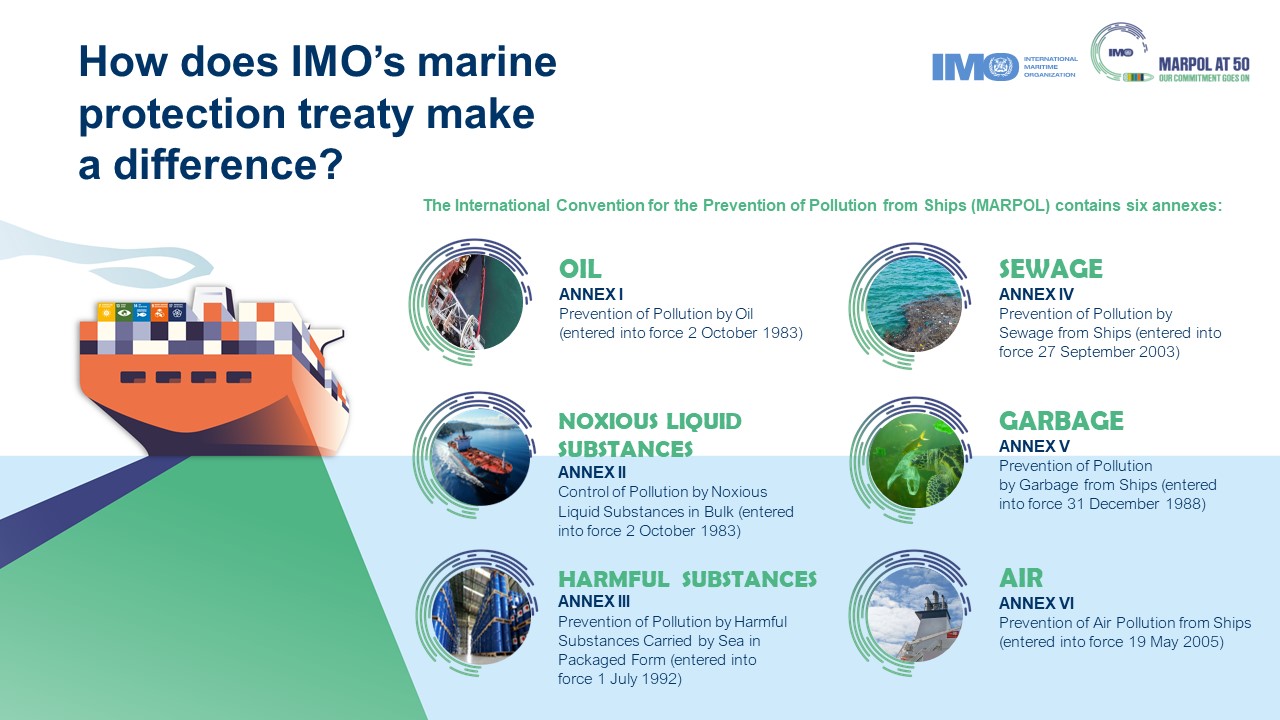Protecting marine biodiversity

Why does marine biodiversity matter?
Biodiversity is essential for human health and well-being, economic prosperity, food safety and security. By protecting biodiversity, we can ensure the future of the planet and populations.
The UN Environment Programme (UNEP) has highlighted biodiversity loss within the 'triple planetary crisis' that the world faces - and which United Nations Sustainable Development Goals (SDGs) can address (the other two crises are climate change and pollution).
Protecting marine biodiversity
The main global treaty to protect biodiversity is the Convention on Biological Diversity (CBD). The CBD Convention was adopted on 22 May 1992 and entered into force on 29 December 1993. It currently has 196 Parties.
In 2022, the fifteenth meeting of the Conference of the Parties to the Convention on Biological Diversity (COP 15) adopted the Kunming-Montreal Global Biodiversity Framework (GBF), following a four year consultation and negotiation process.
The GBF is seen as possibly the most momentous milestone in the international biodiversity agenda since the adoption of the CBD Convention. Its global goals for 2050 aim to: Protect and Restore; Prosper with Nature; Share Benefits Fairly; Invest and Collaborate.
IMO will play its part in working towards the goals.
How is IMO safeguarding precious marine ecosystems?
The Intergovernmental Science-Policy Platform on Biodiversity and Ecosystem Services (IPBES) has identified the following direct drivers for biodiversity loss: pollution; invasive species; climate change; land and sea use change; and natural resource use and exploitation.
As the UN specialized agency responsible for the prevention of marine and atmospheric pollution from ships, transfer of invasive species by ships and dumping of wastes at sea, IMO's work directly or indirectly addresses most if not all of these drivers, especially with regard to marine ecosystems. To some extent, all IMO's work on the protection of the marine environment implicitly contributes to preserving the world's biodiversity.
For example, by far the dominant pathway for invasive aquatic species transfer is shipping, with the shipping-related vectors (ballast water and biofouling) accounting for the majority of such transfers. At the same time, the shipping pathway is by far the most comprehensively managed through IMO's relevant work such as the Ballast Water Management (BWM) Convention, Biofouling Guidelines, and associated guidelines.
IMO directly contributes to reducing pollution in the marine environment through the MARPOL Convention (all six Annexes), the London Convention/Protocol, the AFS Convention, OPRC, etc.. IMO tackles climate change through MARPOL Annex VI and the IMO Strategy on Reduction of GHG emissions from Ships.
IMO's work on ocean protection extends to work on spatial planning (e.g. PSSAs and ECAs), and sustainable fishing (in cooperation with FAO).
Among the
23 targets contained in the GBF for action over the decade to 2030, some address topics directly relevant to IMO's work: area-based measures (target 3), invasive species (target 6), pollution (target 7), and climate change (target 8).
Overview of the interconnectedness of IMO's work with the drivers for biodiversity loss
Pollution (prevention and response) |
|
|---|---|
Invasive species |
|
Addressing climate change |
|
Sustainable sea use |
|
Protecting natural resource use |
|
IMO's commitment to protecting marine biodiversity
IMO is committed to protecting and rebuilding biodiversity upon which the world relies.
By implementing IMO's global regulatory framework on marine environment protection IMO is supporting global efforts to address some of the challenges the planet faces through strengthened international cooperation.
IMO has long been engaged in various inter-agency and inter-governmental activities on broader environmental matters at a high level (e.g. UN Environment Management Group, UN-Oceans, BBNJ, etc.). In recent years there has been increased and more direct participation in activities that are specifically related to biodiversity. This is led and coordinated by IMO's Marine Biosafety Section, in close cooperation with the Office for London Convention/Protocol and Ocean Affairs, both within the Marine Environment Division.
Throughout the development of the GBF, IMO, along with other UN agencies, has provided input through processes such as the Consultative Process on Biodiversity under the UN Environment Management Group (EMG), and the Development of the UN Common Approach on Biodiversity under the High-level Committee on Programmes (HLCP) of the UN System Chief Executives Board for Coordination (CEB).
The IMO Secretariat has contributed to the joint input provided to the GBF by the UN system, including directly contributing to the development of the first draft of the GBF, which was initially undertaken by the CBD Secretariat, and to the development of the UN Common Approach on Biodiversity.
While the GBF targets are primarily for Member States, and not directly directed at sectoral bodies such as IMO, the Secretariat has been identifying how IMO's work can contribute to the achievement of the relevant targets of the GBF.
Read more:
MARPOL - The International Convention for the Prevention of Pollution from Ships (MARPOL) is the main international convention covering prevention of pollution of the marine environment by ships and currently includes six technical Annexes.
Click on the image below.
Control of Harmful Anti-fouling Systems on Ships: The International Convention on the Control of Harmful Anti-fouling Systems on Ships (AFS Convention) aims to ensure that products or systems use don ships to stop fouling (accumulation of species) is not harmful to the marine environment. Read more here.
Oil Pollution Preparedness, Response and Co-operation: The International Convention on Oil Pollution Preparedness, Response and Co-operation 1990 (OPRC 90) is the international instrument that provides a framework designed to facilitate international co-operation and mutual assistance in preparing for and responding to major oil pollution incidents. Read more.
CTU Code - The IMO/ILO/UNECE Code of Practice for Packing of Cargo Transport Units (CTU Code), jointly developed by IMO, the International Labour Organization (ILO) and the United Nations Economic Commission for Europe (UNECE), is a non-mandatory global code of practice for the handling and packing of cargo transport units for transportation by sea and land. The CTU Code includes provisions for container "cleanliness" - including to ensure the CTU does not harbour pests or invasive alien species (including alien species which carry risks of becoming invasive at the site of arrival of CTUs).
Managing ships' ballast water: The Ballast Water Management (BWM) Convention (full name, International Convention for the Control and Management of Ships' Ballast Water and Sediments, 2004) was adopted to help prevent the spread of potentially harmful aquatic organisms and pathogens in ships' ballast water. Discover more about the BWM Convention
here.
Protecting Particularly Sensitive Sea Areas: The IMO regulatory framework grants additional protection to areas known as Particularly Sensitive Sea Areas (PSSAs). These include special measures to protect the areas' vulnerable ecosystems, for instance by the re-routing of ships. So far 17 areas have been designated as PSSAs, including the Great Barrier Reef and the Galapagos Islands
Biofouling is the accumulation of aquatic organisms on wetted or immersed surfaces such as ships and other offshore structures, and is another vector for the translocation of invasive aquatic species. Read more about IMO's work on biofouling here.
Dumping of wastes at sea: Two IMO treaties play a fundamental role in restricting the dumping of waste at sea. The
London Convention and London Protocol (LC/LP) ban disposal of waste at sea, other than in very specific cases. They prohibit the dumping of radioactive and industrial waste. Under the Protocol, all dumping is prohibited, except for possibly acceptable wastes on the so-called "reverse list". Read more here.

